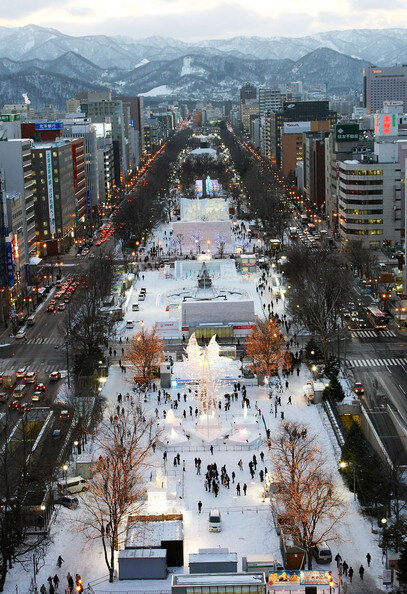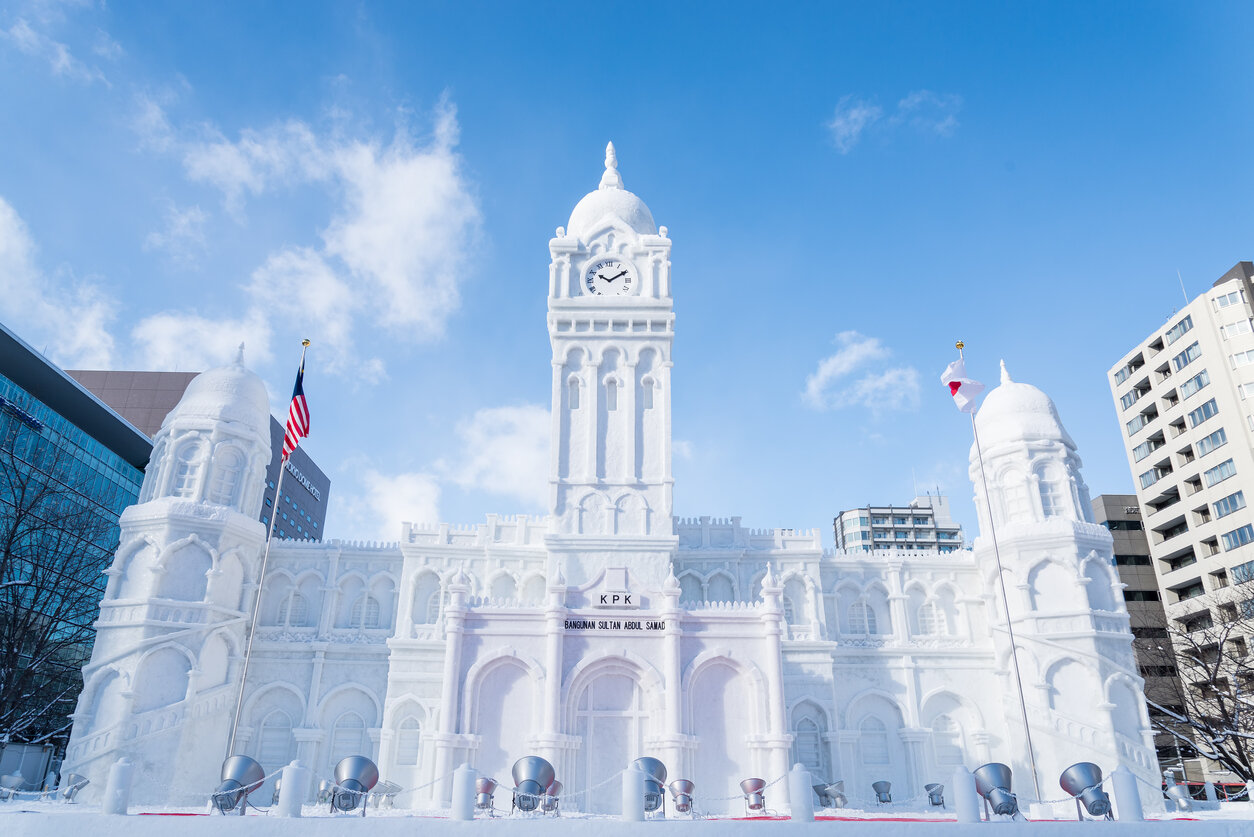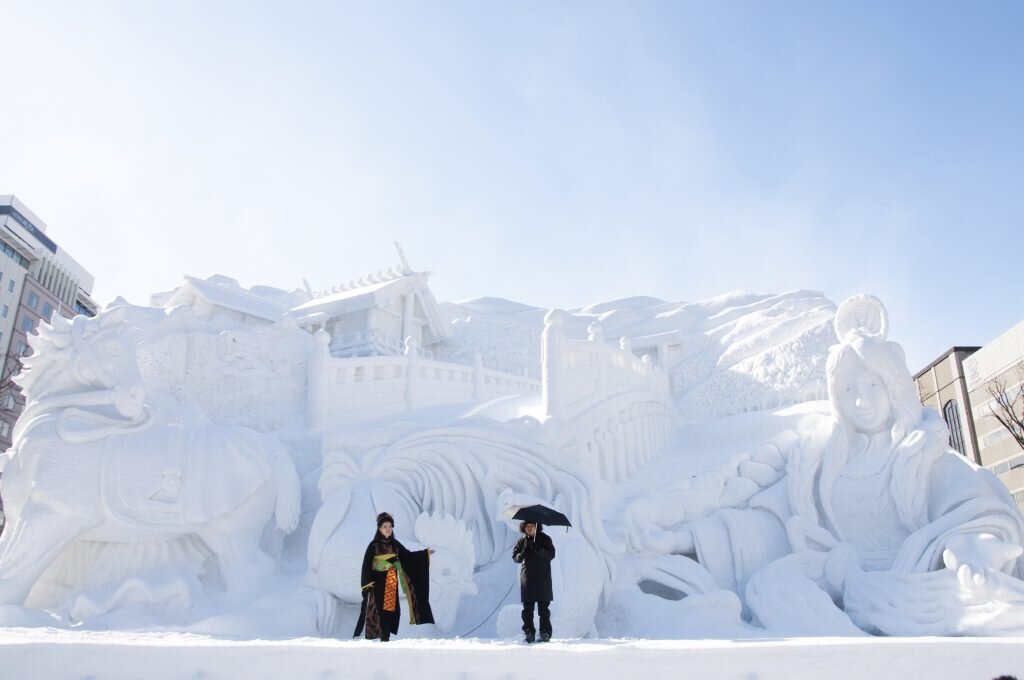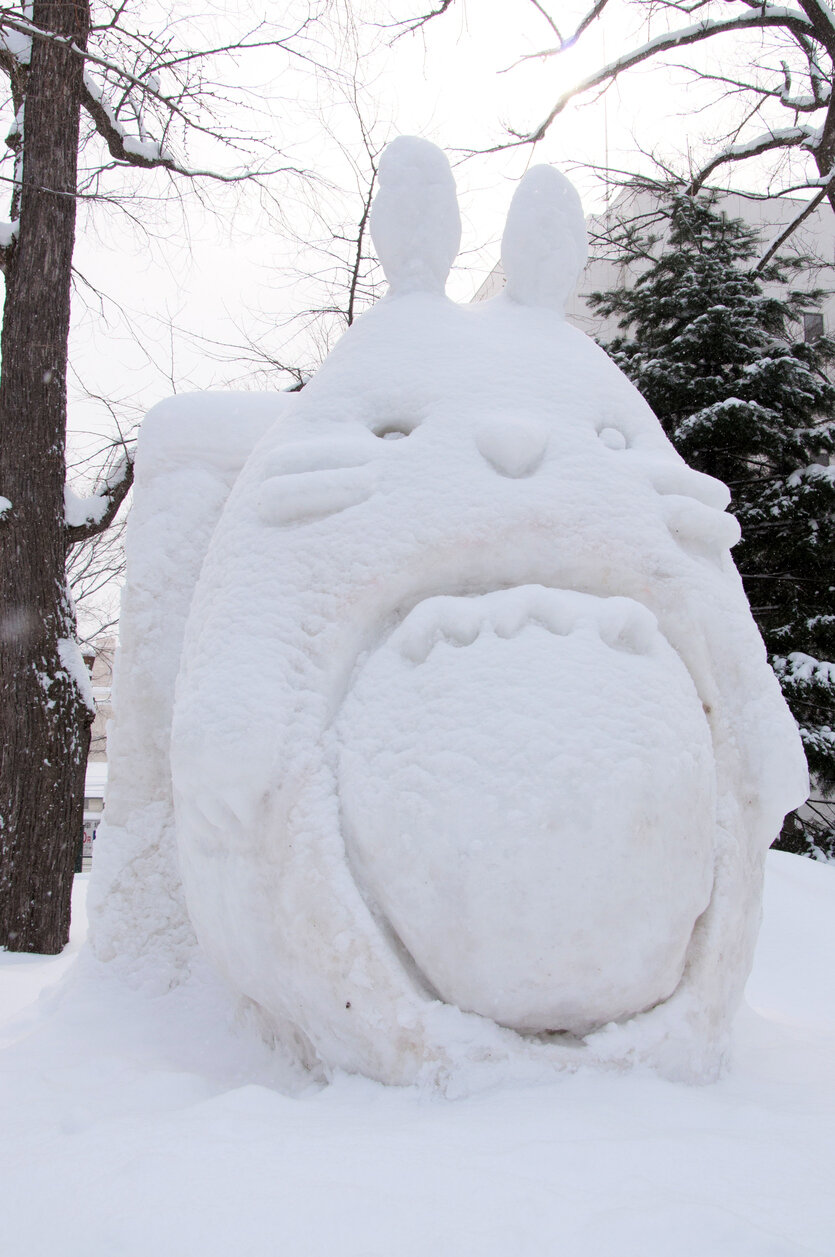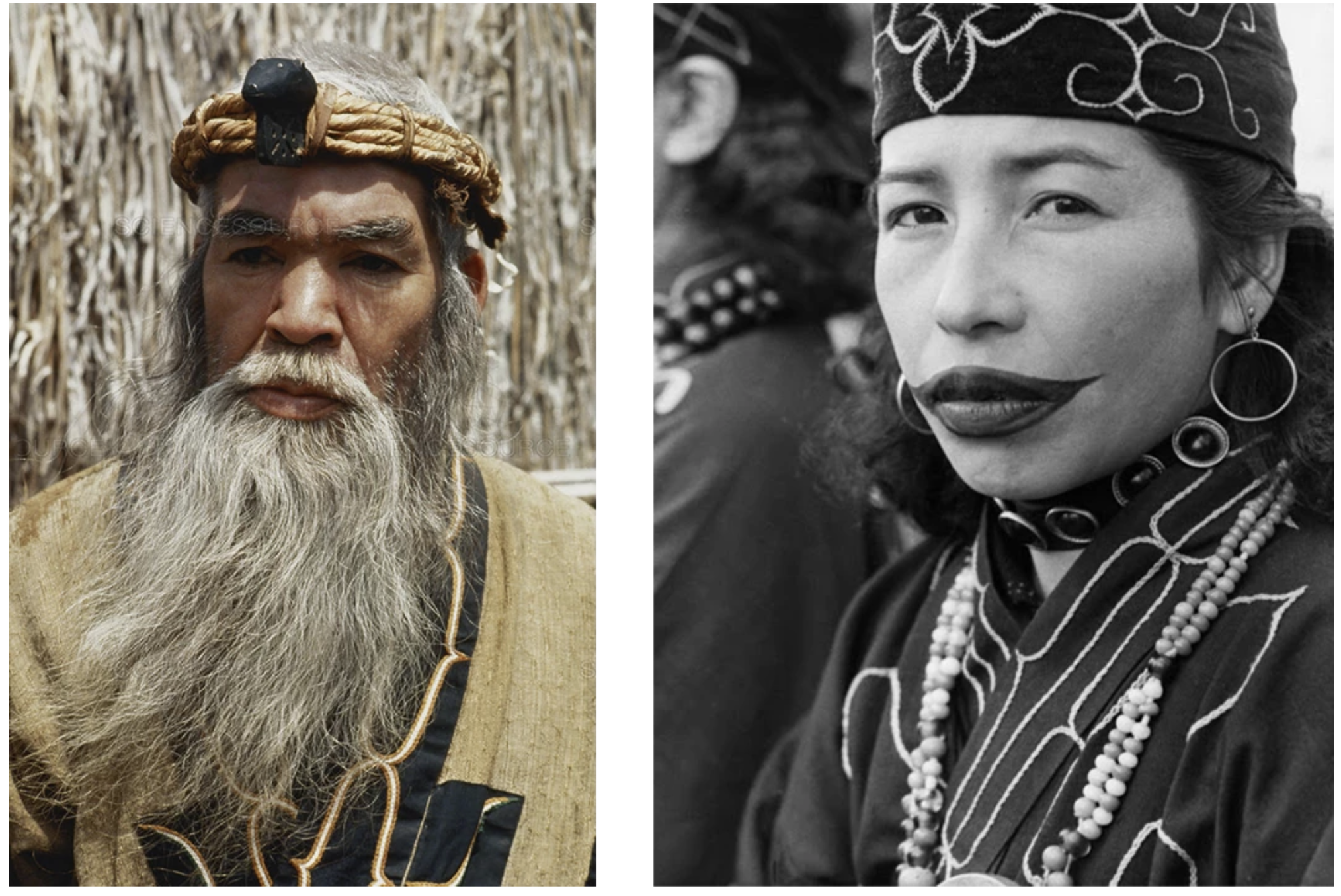Hokkaido Snow Festival, Ainu,
HOKKAIDO
Japans most northern island, Hokkaido, has only officially been a part of Japan for about 150 years. In 1957
Taro and Jiro.
Hokkaido Snow Festival
If you plan a trip to Hokkaido in winter there is an incredible festival of snow sculptures
This year it opens on Feb.4 (Tue.) - Feb.11 (Tue), 2020
"You can visit Odori site at any time.
(Illuminations turned on at sunset, and turned off at 22:00.)"
Located in Odori Park in the center of Sapporo, here you will find a fascinating world of snow and ice stretching across approximately 1.5 kilometers. You can enjoy a wealth of attractions such as the amazing huge snow sculptures, Hokkaido-specialty gourmet options, a skating rink, and much more! Again this year, the popular projection mapping shows are not to be missed.
https://www.snowfes.com/english/
Ainu
The Ainu are an indigenous ethnic group of people who live in Hokkaido in Japan today as well as in Russia (the Kuril Islands and Sakhalin). In the 19th Century, Japanese people called the northern island of Hokkaido “Ezochi” which means “Land of the Ainu”. The term Ainu generally referred to the fair-skinned, long-haired hunter-gatherer-fishering people with animistic beliefs who had lived there for hundreds of years.
From the 15th century, waves of Japanese settlers began crowding out Ainu communities on Honshu island and pushing them northwards. The settlers also brought infectious diseases that caused Ainu populations to fall. Ainu land was redistributed to Japanese farmers.
In 1899, the Japanese government passed an act which labelled the Ainu “former Aborigines”, ostensibly declaring that the Ainu had been integrated into the Japanese population – the act, together with the various assimilation policies had the drastic effect of eroding Ainu identity and traditions. The Meiji government’s 1899 assimilation policies resulted in the ban of the Ainu language and Ainu children being given Japanese names and put into Japanese schools. As a result of these policies, many Ainu people suffered discrimination and became ashamed of their language and culture. The act continued for a hundred years.
The 1899 act was finally officially reversed on June 6th, 2008, when the Japanese government passed a resolution adopt a resolution that, for the first time, formally recognised the Ainu as “an indigenous people who have their own language, religion and culture”.
Today only small numbers of Ainu remain, and they constitute one of Japan’s most marginalised groups. The Ainu are thought to number around 25,000 (official sources) while unofficially, they are believed to number around 200,000 or more since many Ainu still do not disclose their roots out of fear of discrimination.
Historically, they spoke the Ainu language and have traditionally been considered the descendents of the Jomon or post-Jomon people of Japan. In their Yukar Upopo (Ainu Legends) is told, “The Ainu lived in this place a hundred thousand years before the Children of the Sun came”.
There are still Ainu communities in Hokkaido and you can visit them and learn about their culture.
First of all, both men and women keep their hair at shoulder length and wear traditional Ainu garb. Men, never shaving after a certain age, usually have full beards, and women undergo mouth tattooing to signify their coming to adulthood.

